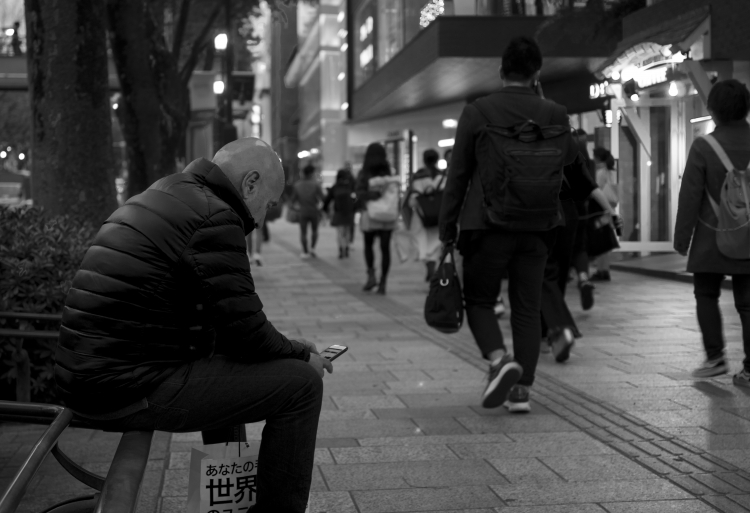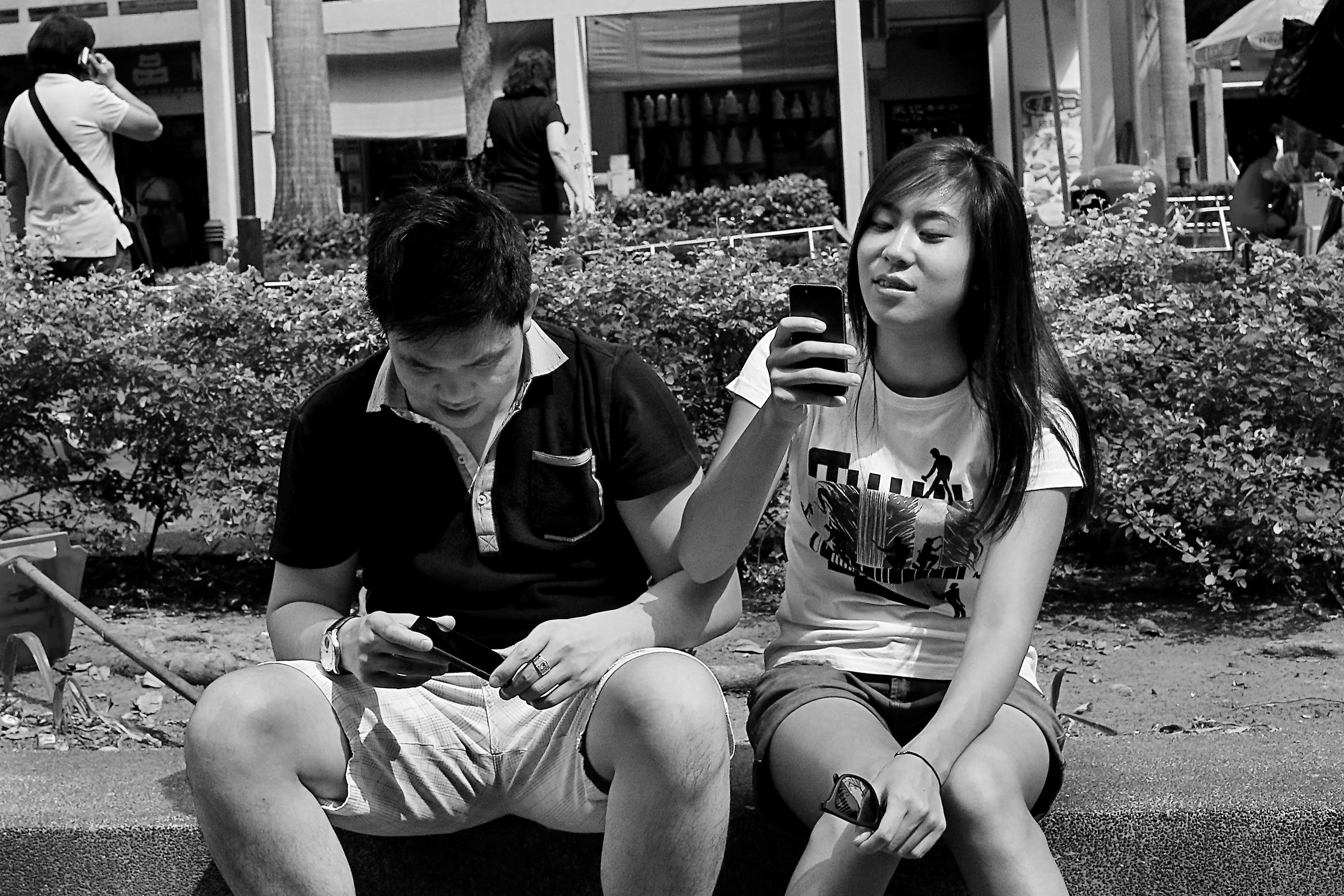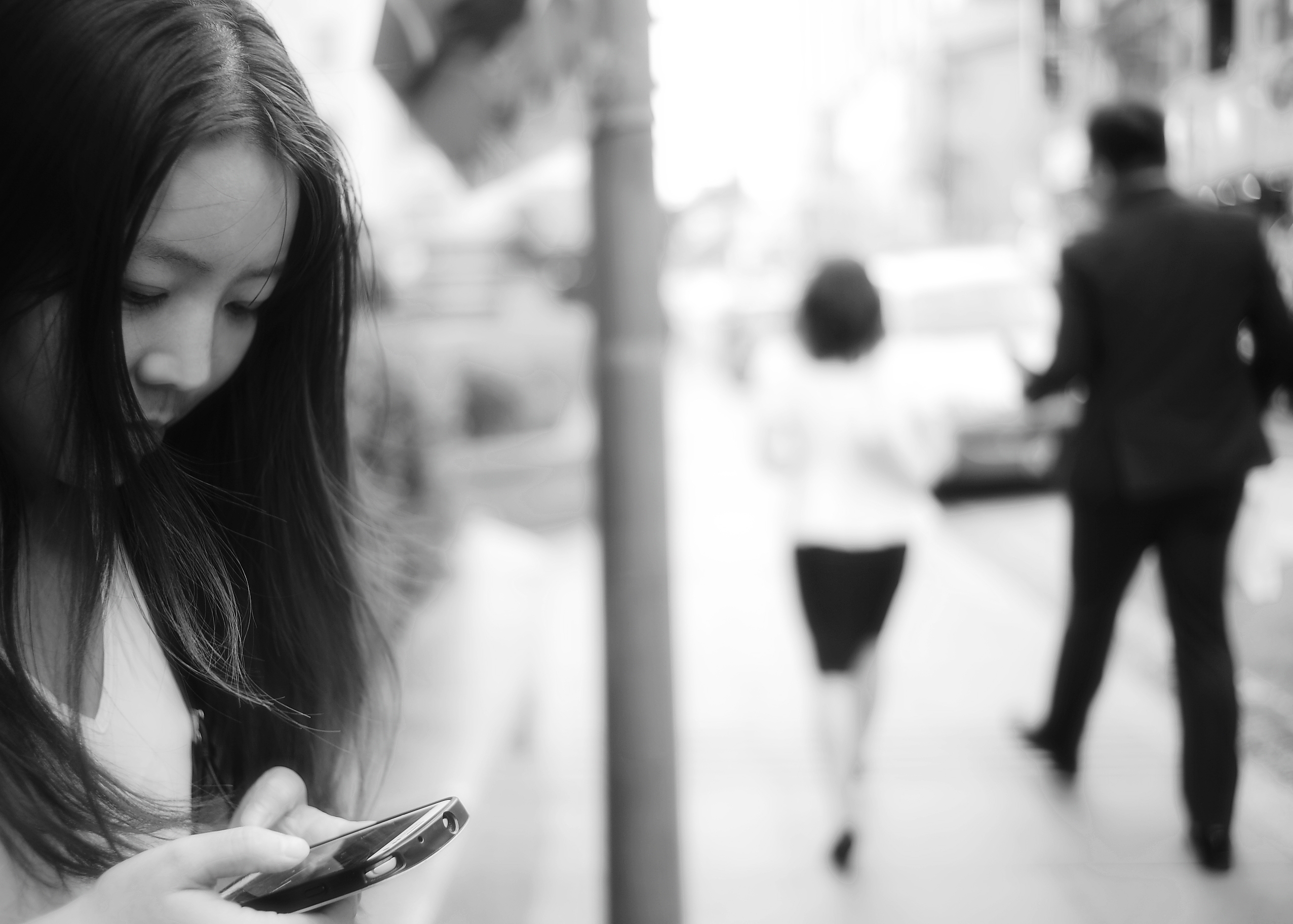Behind the Screen

In this day and age, knowledge is instantaneous. Technological advances have created unlimited access to information at our fingertips, which facilitates our world in many ways—as students, as emerging artists, as future politicians, and in many more areas of life. Not only have we created a platform to share information, but we have built digital replicas of ourselves on social media sites. Our digital selves have a considerable impact on how others view us and how we may interact with others. We erased the typical timeline of getting to know someone due to these preconceived notions that become formed online. Long gone are the days of face-to-face conversation, sticking to plans, and discovering who someone is in their own words. But what happens behind the screen?
The fear that comes along with confrontations, emotional sentiments, and letting someone down becomes diminished when we are behind the screen. The invisibility that results from communicating through a phone or computer is almost too much to handle. We are allowed to say whatever we want, post whatever we want, and 'like' whatever we want, as the repercussions don't come until later. It becomes easier to express ourselves through these social media platforms because we can be whoever we want to be by creating a certain image of yourself. But what goes up, must come down. Invisibility behind the screen leads to unbearable anguish, anxiety, and fear of expressing ourselves. When building a relationship with someone, the fear of self-expression can be detrimental. Not only do we hide things that need to be said, but many people decide to take these matters to Twitter, Instagram, or to iMessage. "It's best not to include social media as a basis for any arguments because it can easily become a constant problem," AUP student Paolo Schoene advises.
Due to the overwhelming fear of being emotionally honest, these situations happen more often than not. As ridiculous as it seems, it is a tough habit to break. There is an innate fear within us all of being rejected, which is why it is so much easier for us to hide behind our phones. But to have healthy relationships, we have to stop the behavior before it becomes the basis of the relationship itself. It is easy to fall into these systems of communication where we never really have to explain our feelings face-to-face.
As students of this generation, a lot of our interactions occur through the screen. We meet people, we get their social media accounts, and we scroll through. We schedule meetings, times to hang-out, and get to know each other through our phones. There are benefits to how smoothly we can connect with each other—Facebook provides a "suggested friends list" for ease of finding people who we've most likely met, forgot the name of, or who we've seen around. Instagram lets us share with others our art, photography, or photos of self and friends.
The problems arise when we start spending too much time on these sites—we start making assumptions about others, we react emotionally, and we become fixated on what others are doing and start comparing it to our own lives. "I honestly do make assumptions based off of stuff I see on social media because social media is a platform where you're not seeing someone face to face. It's the way in which they can represent themselves, so just like you would judge someone for how they dress, you judge someone by what they put on social media. You shouldn't judge people by it, but you do it anyway," says AUP student Kristina Rayl, which leads us to another complication of social media: the replacement of social media acknowledgment as a label.
Image credit: flickr/Erwin Soo
One of the most confusing situations of our generation is social media etiquette when it comes to someone we are 'seeing'. In this in-between stage of not defining the relationship, we hesitate in asking our significant other what the relationship means. Although it is alright to wait a while to define a relationship, the problem arises when we base social media postings on how someone feels about us. Instagram is a looming media platform, which seemingly communicates who we are, who we spend our time with, and who we are as people. As a social media platform, it does a good job of allowing people to express themselves and share their lives through photographs.
Inevitably, we begin to interpret other peoples' lives off of their Instagrams, and this creates a dilemma. "If I see constant photos of two people together, I will assume they're seeing each other," Paolo Schoene notes. What does it mean if someone hasn't posted a photo of you on their Instagram? AUP student Rachel Creger elaborates on how she views social media as an intrusion of relationships: "I was in a long distance relationship for a long time. It was painful to be away from each other, and there were a lot of insecurities, so for that specific reason we decided to stop following each other on Instagram, and we still don't. It didn't bother me at all—I don't feel like that's the real world. I think that social media's reflection and the actual person are two different things." Although the irrationality of this ideology is clear, many altercations occur between partners because of this notion of wanting to be 'seen' on each others' social media platforms. Paolo tells the story of a past relationship and how social media interfered:
"It would bother me not to be recognized on social media if the other person forces me to post pictures with them constantly. It happened to me in my last relationship—I always put photos up of her, and she would never do the same. It made me think that she was scared to post something of me, that maybe she had something to hide. I posted them to show people that I was in a relationship, so people would know that I loved her and that I was taken. Relationships can go either way. Now, I post pictures with my girl Ambra all the time because I love her and the photos we take are super cute. I would prefer to post pictures of us than just me. But we can post whatever we want. She posts photos with her family, and I post pictures with my boys without thinking twice."
There is no simple solution to this dilemma. Coming from someone who, years ago, discovered their partner was cheating on them through Instagram, I understand the temptation of reacting emotionally to things we see online. One can't merely quit caring about social media and start opening up to a partner overnight. Relationships took time to form 20 years ago, and they take time to develop now. One way to slow down the hyper obsessing that social media platforms encourage is by asking yourself why it makes you upset that your partner hasn't posted a photo of you in months.
Image credit: flickr/HO JJ
The students were asked what advice they would give to someone struggling with anguish in regards to their relationship as a result of social media:
"I think many of our feelings around social media are manifestations of anxiety. We exculpate ourselves from the guilt of being insecure. If someone is insecure about their partner not showing him or her off on Instagram, I would ask: why? Are you worried that he or she's embarrassed by you? Are you worried that he or she wants to seem available? What insecurities are contributing to your worry?" - Rachel Creger, 21.
"It's just appearances. I tend to lean towards being less superficial in a relationship. It's how you guys feel and act towards each other in person that matters. There is something to be said about having a presence on social media, as a recognition of the other person and letting other people know about the relationship, but it shouldn't be the sole concern that will make or break a relationship." - Kristina Rayl, 19.
"Social media is not important at all. Who cares about what you post? What other people post is their decision. I learned with my last relationship that I shouldn't have to think I need to post a photo with her. I should just post what I want because it's my decision. That can ruin a lot of relationships—that just one person is posting photos and the other is not. It creates jealousy, concerns, and insecurities." - Paolo Schoene, 21.
Is it because the act of posting makes you genuinely happy, or is it because you want everyone who follows them to know about the relationship? If it is the latter, let it go. The bottom line is that for things to progress healthily, expressing yourself and being honest about how you feel is the way to do it. Maybe explain that you sometimes need a little reassurance of love and loyalty?









